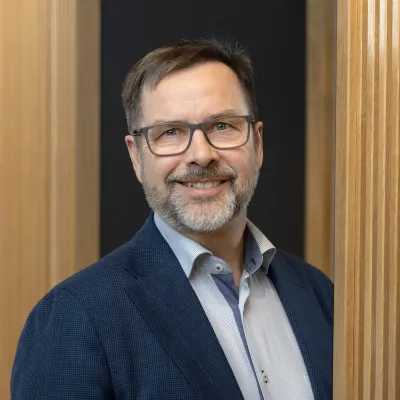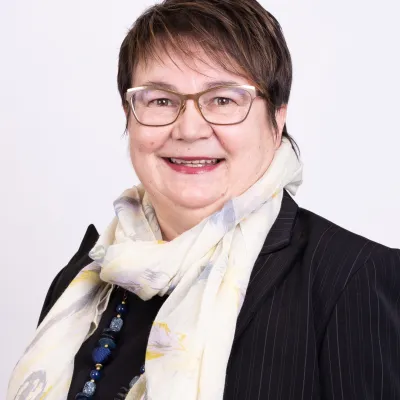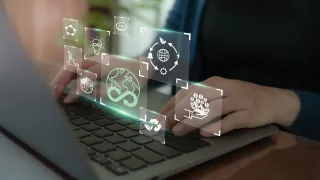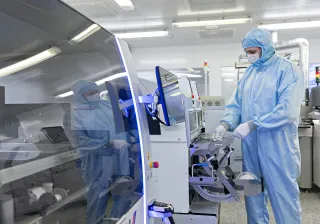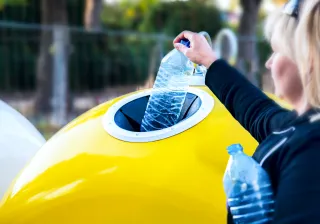To date, more than 400 Mt of plastics are being produced annually, and global production is constantly on the rise to meet the demands. At the same time, efforts are being made to reduce the amount of plastic that ends up as waste by tightening regulations, but the goals cannot be achieved without comprehensive development of the circular economy of plastics. On the other hand, there lies significant business potential. To generate new business, a well-functioning value chain must be created.
VTT Technical Research Center of Finland acts as the coordinator of the new PlasticsCircularity project. This initiative is a joint research project between VTT, The Finnish Environment Institute (SYKE), University of Eastern Finland (UEF) and Lappeenranta-Lahti University of Technology (LUT), also bringing onboard seven business partners. In the project, the circular economy of plastics is approached from the points of view regulation, business models and technological solutions. This project is part of the Business Finland funded SPIRIT programme, led by Borealis. The project is well aligned with the SPIRIT themes of eco-efficiency, recyclability of materials, reuse and recycling.
Sustainability Project Manager Sanna Martin from Borealis says: ” This project aims to take plastics circularity in Finland to a next level from many different angles. Closing the loop also for the more challenging plastics waste streams, such as plastics used in health care, is needed to reduce CO2 released in waste incineration.”
Starting point: Understanding the regulatory landscape
Europe has set high targets to increase the recycling rate of plastics by 2030. Legislation strongly influences the circular economy of plastics, but the regulation is complex and partly contradictory, as well as undergoing rapid changes. The PlasticsCircularity project aims to clarify the regulatory field and anticipate its impacts.
"The regulatory field is currently evolving significantly. Understanding the effects of regulation is crucial for the development of the plastics circular economy and for creating new business opportunities in the sector. Actors who are aware of upcoming rules and regulations and act together and in a timely manner based on them, will be the winners of the game," says Mika Härkönen, Professor of Practice at VTT.
Building a value chain for the circular economy of plastics
The recycling rate of plastics needs to be increased so that the circular economy of plastics could generate even hundreds of millions worth of new business annually in Finland. However, the development is hindered by an unstable business environment. Significant changes are needed in the production, consumption, and recycling of plastics to exploit business opportunities.
"Finland has excellent opportunities to strengthen its position in plastic recycling, and our technological expertise is outstanding. Now, a value chain needs to be created for the circular economy of plastics, enabling the actors to export technology and products made from recycled plastics globally. Finland has all the necessary actors to form this value chain. “Our project supports collaboration and enhances understanding of how profitable business can be created in the circular economy of plastics," Härkönen states.
Bringing new plastic types into circulation – example of hospital plastics
Achieving the recycling rate required by European legislation necessitates the introduction of new plastic fractions in the material cycle.
Currently, only high-quality and sufficiently large plastic waste streams are part of the cycle – there is no functional recycling system for plastics that are difficult to recycle, such as biodegradable or cellulose based plastics. The PlasticsCircularity project investigates the bottlenecks related to plastic recycling and seeks solutions to incorporate difficult-to-recycle plastic fractions into the cycle. For instance, new technologies, collection and cleaning methods, and better traceability of plastics can provide means for this.
Plastics used in healthcare are a good example of difficult-to-recycle plastics: contamination during use phase prevents their recycling. In Finland, approximately 10,000 tons of plastic waste from healthcare is generated every year, and this waste currently ends up being incinerated. These plastics could be brought into the cycle, for example, by developing sorting and treatment methods for plastic waste. Serres Oy is one of the companies participating in the project and is developing plastics for hospital environments and investigating the prerequisites for incorporating hospital plastics into the material cycle.
PlasticsCircularity is a two-year project funded by Business Finland. The project is coordinated by VTT, and its research partners are SYKE, UEF, and LUT. The following companies are involved in the project: Borealis Polymers Oy (SPIRIT Veturi -ecosystem), Fortum Waste Solutions Oy, Wipak Oy, Serres Oy, FF-Future Oy, Sulapac Oy and Woodly Oy.

Main Photo: SPIRIT programme
